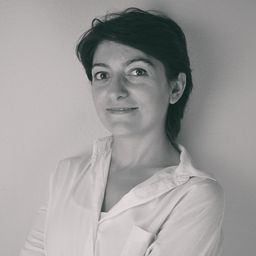
Sessions in which Emek Yilmaz participates
Sunday 5 June, 2016
Sessions in which Emek Yilmaz attends
Friday 3 June, 2016
Find out more about all the eras that shaped Montréal with this interesting walking tour, from the foundation of Fort Ville-Marie in 1642 to today’s modern city. The historic heart of the city and its adjacent Old Port will help illuminate the story of one of the greatest cities in the Americas. Your guide will lead you through a maze of narrow streets where you can find a multitude of historic buildings. Explore the birthplace of our metropolis and experience a special voyage back in time! ...
Saturday 4 June, 2016
Most of what we experience as heritage emerges into conscious recognition through a complex mixture of political and ideological filters, including nationalism. In these processes, through a variety of devices (museums, scholarly research, consumer reproduction, etc.), dualistic classifications articulate a powerful hierarchy of value and significance. In particular, the tangible-intangible pair, given legitimacy by such international bodies as UNESCO, reproduces a selective ordering of cul...
Sunday 5 June, 2016
This session explores the different ways late modern states control and translate heritage, both their own and that of others. While modern governments have always played a role in the production and authorization of heritage, late modern states have unprecedented command over the heritage landscape. Coinciding with the postwar economic boom, globalization, and most recently neoliberalism, the state has come to dominate the most vital aspects of heritage, ranging from research (heritage produ...
"What does heritage change?" is a multifaceted question to which the answer(s) are in primary respects related to real-life negotiations among different groups of citizens, cultures, races, ethnic groups, sexual identities, and social classes about received, official and/or widely accepted or accomodated intangible attributes, cultural traditions, historic monuments, buildings, and other transmitted or revived historical legacies. Heritage designated by and for whom, for what motivations, an...
Directed by Tom Fassaert and presented by Marc Jacobs. ___ Doel, a Belgian village near the Dutch border, is disappearing quickly and deliberately. Not because of the four old nuclear reactors on its territory, but because the Flemish government decided that the village might block projects for new docks for the Antwerp harbour, plans developed since the 1960s. In the 21st century this process of officially encouraged depopulation is coming to an end: 2500 inhabitants i...
Monday 6 June, 2016
This session seeks to explore the role of urban heritage in mediating and contesting political conflict in the context of divided cities. We take urban heritage in a broad sense to include places left, scarred or transformed by geo-political dispute, national and ethnic division, violence and war. The case studies can include tangible spaces such as elements of border architecture, historic sites, ruins and urban traces of the conflict, and memorials; as well as intangible elements of city, i...
Le patrimoine fait aujourd’hui l’objet d’attentions autant que d’agressions et de destructions. Cela peut s’expliquer par les difficultés de son identification ou de sa conservation. Cela peut plus profondément s’expliquer parce que, dès le départ, il célébre un événement ou conserve une mémoire qui peut être ou devenir une source de dissenssions et de conflits politiques. Enfin, sa reconnaissance suscite des gains économiques pour les uns mais des pertes pour les autres. Mais peut-être...
Tuesday 7 June, 2016
(Guided visits to Two Exhibitions, Centre d’histoire de Montréal- bilingual) – The Centre d’histoire de Montréal presents Dans le Griff that takes visitors into the neighbourhood of Griffintown, as depicted through the lives and memories of the Mercier family. Their life stories will take us down the streets of an industrial sector that has undergone quite the metamorphosis. Griffintown is one of the oldest industrial and working-class neighbourhoods in Montreal. In the forefro...
Cities are growingly being faced by social, economic, cultural and environmental challenges imposing health and social risks. Rapid urbanization, population growth, climate change are only some of the major global challenges that a 21st century city needs to respond to. The current challenging global environment has led to the development of new approaches to the concept of "sustainable city" a city that caters for current and future generation. For instance, the idea of smart city (a city th...







